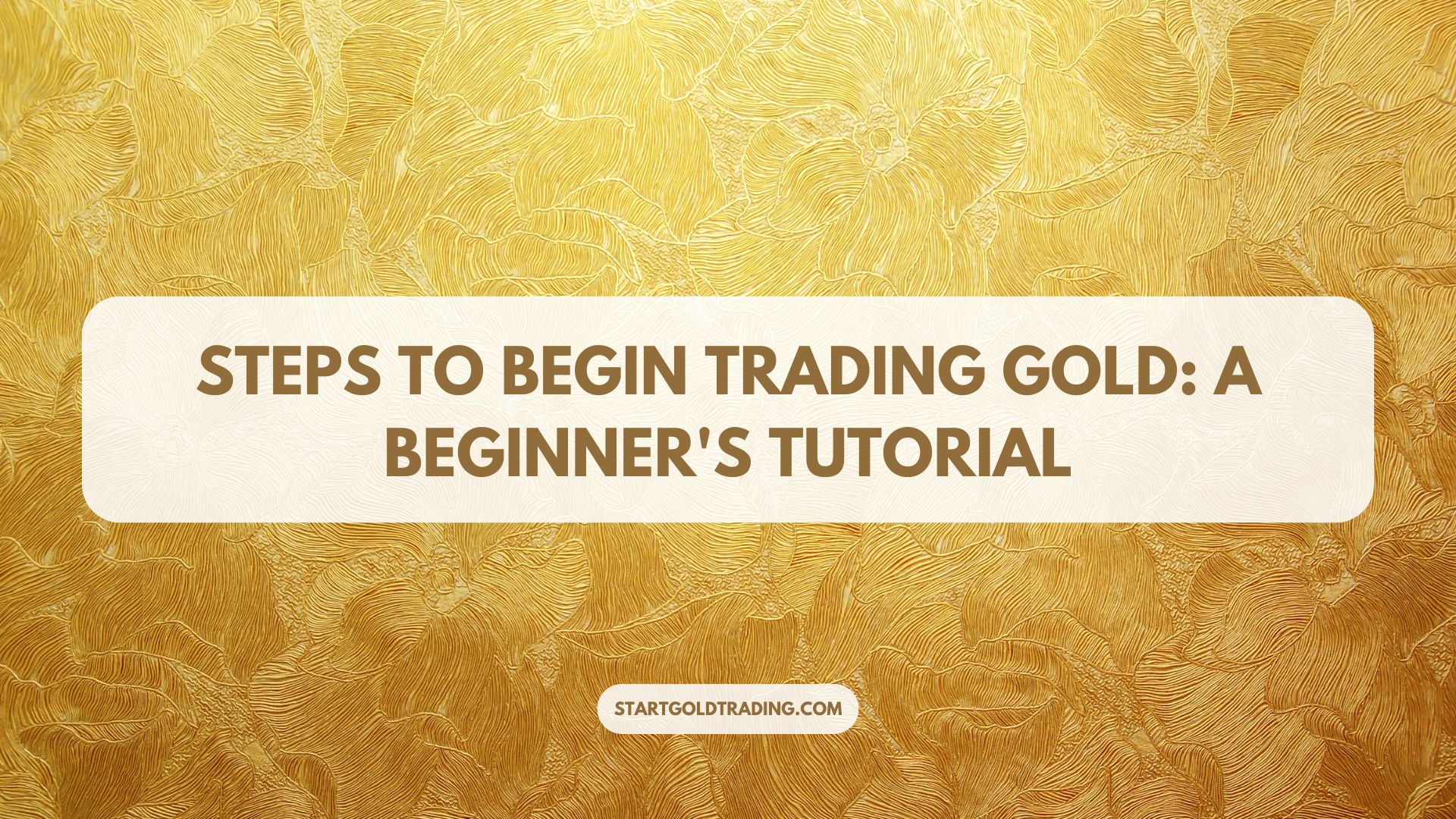Gold trading offers exciting opportunities for beginners looking to profit from market fluctuations or diversify their investment portfolio. However, to succeed, you need a structured approach that includes goal setting, effective account management, and ongoing performance analysis.
This beginner’s tutorial will walk you through the essential steps to start trading gold, ensuring you have a solid foundation for long-term success.
Step 1: Setting Financial Goals – Define Your Trading Objectives
Before you start trading gold, it’s important to set clear and realistic financial goals. These objectives will guide your trading strategy, risk tolerance, and investment decisions.
🔹 What Are Your Trading Goals?
Ask yourself the following:
📌 Are you trading gold for short-term profits or long-term investment?
📌 Do you want to hedge against inflation and currency risks?
📌 What level of risk are you comfortable with?
🔹 Short-Term vs. Long-Term Gold Trading
✅ Short-Term Trading (Scalping & Day Trading) – Focus on quick profits from market fluctuations.
✅ Medium-Term Trading (Swing Trading) – Hold trades for days or weeks, targeting larger moves.
✅ Long-Term Investment – Buy and hold gold as a safe-haven asset for wealth preservation.
📌 Pro Tip: Beginners should start with small trades and a demo account before committing real funds.
Step 2: Account Management – Maximizing Efficiency
Once you’ve defined your goals, the next step is to set up and manage your trading account effectively.
🔹 Choosing the Right Broker
Selecting a regulated and reliable broker is crucial for safe gold trading. Consider:
✅ Regulation & Security – Ensure the broker is regulated by FCA, ASIC, or CFTC.
✅ Trading Fees & Spreads – Look for low-cost brokers with tight spreads on gold (XAU/USD).
✅ Platform Usability – Opt for platforms like MetaTrader 4 (MT4), MetaTrader 5 (MT5), or TradingView.
📌 Recommended Brokers for Gold Trading:
- eToro – Best for beginners with a user-friendly interface.
- IG Trading – Advanced tools for gold price analysis.
- AvaTrade – Offers both CFD and physical gold trading options.
🔹 Setting Up Your Trading Account
Once you choose a broker, follow these steps:
1️⃣ Register & Verify – Complete KYC requirements with a valid ID.
2️⃣ Deposit Funds – Start with a small capital, around $100 – $500.
3️⃣ Select Leverage Wisely – Use low leverage (5:1 or 10:1) to reduce risk.
4️⃣ Choose Order Types – Learn market orders, limit orders, and stop-loss orders.
📌 Pro Tip: Always use a demo account to practice before live trading.
🔹 Managing Risk and Protecting Your Capital
Effective risk management ensures you stay in the game long enough to develop as a trader.
✅ Set Stop-Loss & Take-Profit Levels – Limit potential losses and secure profits.
✅ Risk Only 1-2% of Capital Per Trade – Avoid overexposure.
✅ Diversify Trading Strategies – Combine technical and fundamental analysis for better accuracy.
Step 3: Feedback and Analysis – Learn & Improve
To grow as a successful gold trader, you must analyze past trades and refine your strategy.
🔹 Keeping a Trading Journal
A trading journal helps track performance and identify strengths and weaknesses.
📍 What to Record in Your Journal?
✅ Entry & Exit Prices
✅ Reason for Trade (Technical or Fundamental Analysis)
✅ Stop-Loss & Take-Profit Levels
✅ Profit/Loss Results
✅ Lessons Learned
📌 Pro Tip: Review journal entries weekly to spot patterns and improve decision-making.
🔹 Reviewing Market Trends
Staying informed about gold price movements helps traders anticipate future trends.
📌 Best Resources for Market Analysis:
- Forex Factory – Economic calendar for major events.
- Investing.com – Live gold price charts and news.
- Kitco Gold News – Expert insights on gold price trends.
🔹 Refining Your Trading Strategy
Gold traders need flexible strategies that adapt to market conditions.
✅ Technical Traders – Improve entry timing using RSI, MACD, and Bollinger Bands.
✅ Fundamental Traders – Track interest rates, inflation data, and geopolitical news.
✅ Mixed Approach – Combine technical and fundamental analysis for better trade accuracy.
📌 Pro Tip: Adjust position size, entry points, and stop-loss settings based on market conditions.
Final Thoughts: Start Trading Gold with Confidence
Gold trading is a rewarding opportunity, but success requires goal setting, disciplined account management, and continuous improvement.
✅ Key Takeaways:
✔ Define your trading goals – short-term profits or long-term investment?
✔ Choose a regulated broker and manage your account efficiently.
✔ Analyze past trades and refine your strategy for continuous improvement.
By following these steps, you’ll build confidence and expertise as a gold trader.
📌 Ready to start? Open a demo account and practice your first gold trade today! 🚀

